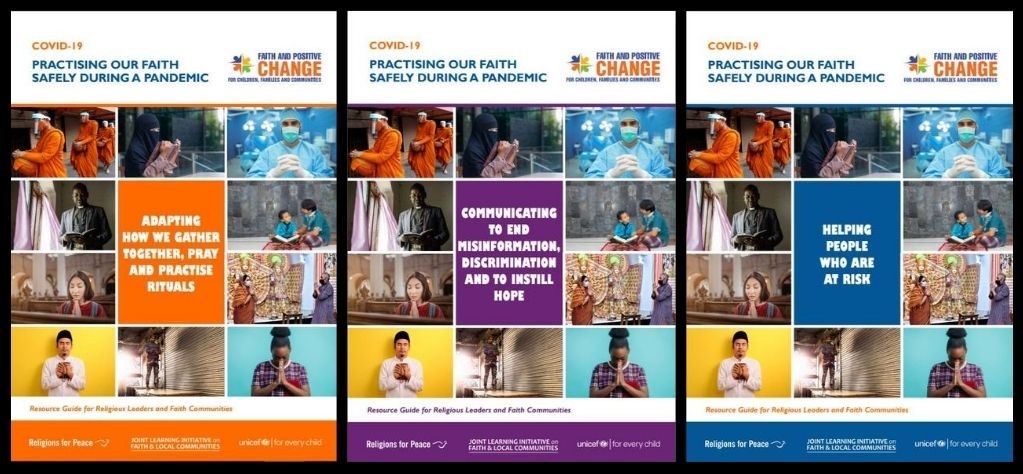Religions for Peace, UNICEF and JLI release new guidance on how to support communities in times of COVID-19
August 3, 2020Religions for Peace (RfP), in collaboration with UNICEF and Joint Learning Initiative on Faith and Local Communities (JLI), has released a series of guidance documents to advise religious leaders and faith communities on how to address challenges brought about by COVID-19.
“UNICEF has a long history of working with faith-based organizations and faith leaders to advance the cause of children and families,” said Dr. Kerida Mcdonald, UNICEF Senior Advisor for Communication for Development. “With the pandemic, this partnership has become even more critical. COVID-19 is a child rights crisis and we all need to work together to reimagine a better and safer world for every child.”
The pandemic has impacted mass gatherings associated with religious celebrations and worship as well as practices around burials, communion, kissing of religious objects and other common religious rituals, which can pose significant public health risks.
The guidance seeks to provide concrete direction for multi-religious action, building on existing local efforts and bringing together scientific and technical information alongside relevant religious teachings.
Three sets of guidance have been released so far:
- – Adapting how we gather, pray and practise rituals: This guide puts forward specific recommendations for how religious leaders can interact, congregate, worship and perform religious rites, including death and mourning rituals while continuing to ensure the safety and well-being of their communities.
- – Communicating to end misinformation and discrimination and to instil hope: The document outlines some of key contributing factors and negative effects of misinformation, rumours, fear, hopelessness, stigma, and discrimination and guides religious leaders on how they can help tackle these challenges.
- – Helping those who are at risk: People such as the elderly, homeless, migrants, people with disabilities, pregnant women, and children are at greater risk of complications and death due to COVID-19 and may be unable to practice the recommended preventive behaviours. The guide outlines the specific needs of these groups and suggestions for providing assistance and encouraging values of solidarity, community and hope.
The guidance documents have been designed for local adaptation and use by religious leaders, faith communities, and faith-based organisations at national and community levels. Their release is part of the Multi-Religious Faith-in-Action COVID-19 Initiative launched in April 2020 to raise awareness of the impacts of this pandemic, including on the world’s youngest citizens.
Upcoming guidance documents will focus on preventing violence against women and children, promoting child and youth participation, and supporting the recovery of social services.
